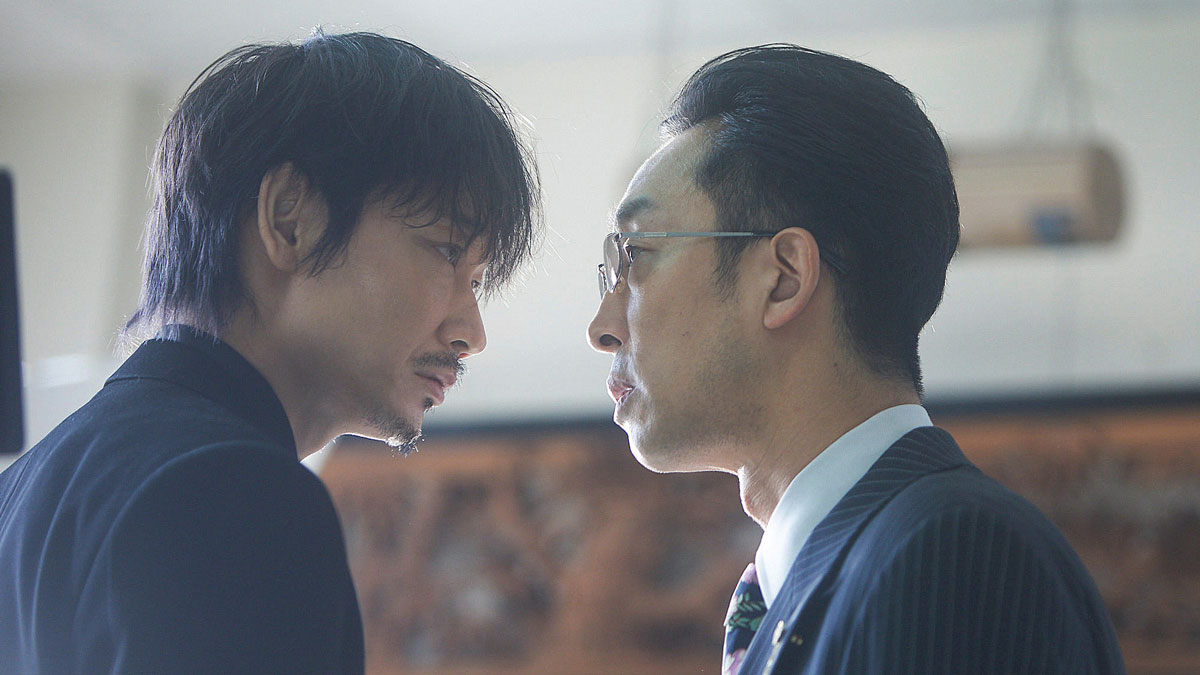
(c)2021 “Yakuza and the Family” Production Committee
“Yakuza and the Family” An unwavering bond in changing times. Michito Fujii's achievements in 10 years as a director
2021.01.30
Works depicting “yakuza” and “law” are thriving
" Subarashiki Sekai " is a modern adaptation of Ryuzo Saki's book " Identity Card ." It follows the story of Mikami (Yakusho Koji), a murderer who has spent most of his life in prison, as he struggles to live as a "normal" man after being released.
This film is also set in a world after the Anti-Organized Crime Law was enacted. Mikami, who is now on welfare, tries to get a job but has difficulty. He is treated as a nuisance by both the system and society. (As an aside, it is interesting to note that Kitamura Yukiya, who played the older brother of the protagonist who was the "rejected" in "The Yakuza and the Family," plays the case worker who is the "rejector" here.)
In a scene where Mikami confronts a yakuza who lives downstairs from his apartment, the yakuza desperately tries to hide his past involvement with the gang, saying, "I finally managed to leave the gang..." The Yakuza and the Family also depicts the "five-year rule" (even if you leave a gang, you cannot open a bank account for five years, etc.), and Yamamoto's younger brother, played by Ichihara Hayato, cruelly says at a meal, "I can't accept money from you, big brother."
"Wonderful World" depicts the life of a man released from prison after the Anti-Organized Crime Law was enacted, as a "story of a citizen left behind by the times" in the vein of " I, Daniel Blake " (2016). Although it is a separate story from "The Yakuza and the Family," the overlapping subject matter gives the two films a strange fate.
"Wonderful World" Trailer
" My Hero Academia " is set in a world where about 80% of the population has a special ability called "quirk." In order to prevent crime, heroes are recognized as a qualified profession that cracks down on criminals (villains). The main character, Izuku Midoriya, is a student who wants to be a hero, but one of his enemies, Kai Chisaki, is a young boss of a yakuza gang.
In order to restore his gang, which has been weakened by the rise of heroes, he puts into action a plan to distribute weapons that steal "quirks". At the root of this is his desire to repay the boss (Oyaji) who picked him up when he was all alone in the world. This situation is reminiscent of Yamamoto from "The Yakuza and the Family".
In addition, the Shie Hassaikai, Chisaki's "family," is treated as a "designated enemy organization." Although they have avoided prison time to this day among the yakuza who have been uncovered and dismantled by heroes, they are a small existence that lives under the watchful eye of the police and heroes. Although it is not explicitly stated, it goes without saying that the Anti-Boryokudan Law has influenced these small details.
"My Hero Academia" Trailer
Of course, I think that there have been other works that have used the Jack Reacher as a medium to depict the story of an outlaw who is left behind. However, the fact that the law is involved is a major characteristic of the works mentioned above.
This movement is now emerging in the media, including movies and manga, starting with "The Yakuza and the Family." Just as "inequality" has become a trend in movies in recent years, and works incorporating "slander" are on the rise, there is every chance that the themes presented in these works, which have a keen sense of the times, will become an even bigger wave in the future.
The challenge of having one actor perform 20 years' worth of roles

